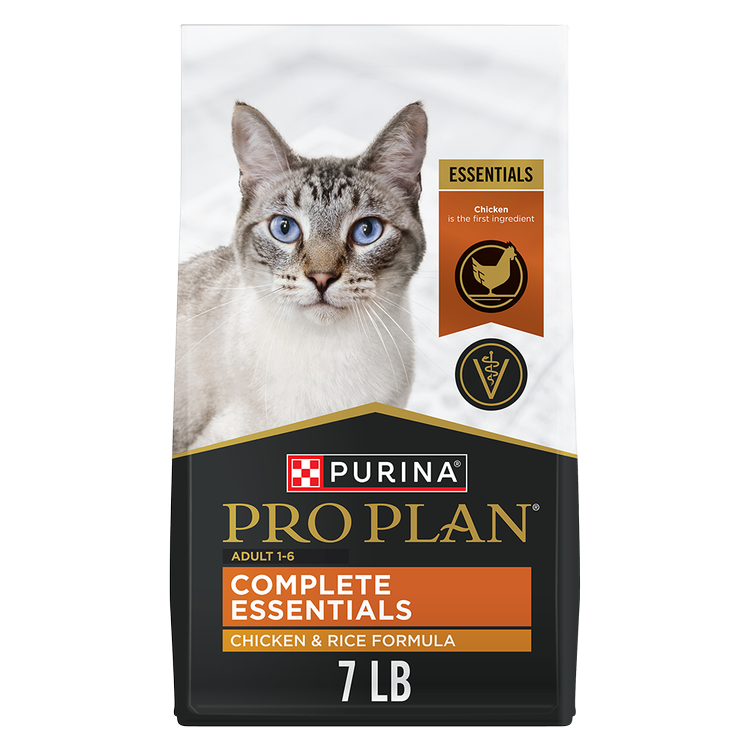Yes, cats are good for kids. Similar to the relationship between kids and dogs, cats can have positive effects on children that last into adulthood.
Of course, kids are drawn to the cuteness of their feline companions, just like adults. Often, however, their relationship goes deeper than just appreciating a cuddly playmate.
Some kids learn enhanced social skills from having a cat, while others may develop a sense of responsibility from, say, being in charge of feeding them cat food every day.*
So if you’re wondering, Are cats good for kids?, read on to learn more about the benefits of having a pet feline.
Cats and Human Mental Health
Research shows a link between cats and human emotions.** This might explain why some people have emotional support cats (and other animals).
Even if your feline isn’t officially deemed a support animal, you may experience the psychological benefits of having a cat. Companionship, decreased anxiety and a sense of nurturing are just a few of the mental health perks felt by some individuals and families who own cats.**
For kids, caring for a feline can aid in their emotional development at a formative time.
Cats and Kids – Benefits
Relationships between cats and kids can help children in a variety of ways. Here are some examples according to the Human-Animal Bond Research Institute.
- Increased empathy. Companion animals like cats help kids understand non-verbal communication and intentions. This can lead to improved emotional understanding. Additionally, kids who grow up with cats become more empathetic adults.
- Emotional support. Cats can comfort children navigating difficult feelings, including those related to trauma.
- Social skills. Attachment to a cat may promote healthy social interaction, communication and play in kids.
- Self-esteem. Caring for a cat is correlated with self-worth.
- Strengthened immunity. Children who grow up around a cat during the first year of life are less likely to develop cat allergies, and get sick slightly less often than kids who don’t.
Are Cats Good Pets for Kids?
Yes, cats can be excellent pets for kids. They provide companionship and assist in social and emotional development. Plus, felines provide a chance for children to learn responsibility.
Depending on your child’s age, you can task them with feeding your pet every day, cleaning the litter box or making sure they get enough play and exercise. It’s important for parents to remember to check in regularly while their child is learning these new responsibilities to be sure they’re meeting their pets’ needs.
Cats and Kids – Problems to Avoid
Teaching kids to care for cats is important if you want them to form – and benefit from – a healthy bond.
Remember to model how to care for your cat, as your kids can learn by watching you. Show them how to handle your pet gently. You can also demonstrate how to feed and play with them, as well as change the litter box.
If you neglect your cat’s care, it may send a message that it’s okay to ignore their well-being.
Once your kids follow your example, it can also help the pet feel more comfortable around them. Note, however, you can always socialize your cat at home, but some felines may never feel comfortable in the company of kids or noisy environments.
Before you adopt a cat, talk to the breeder or shelter about the animal’s temperament, and try to learn more about the environment in which they were raised.
Cats and Toddlers
While it’s important to model appropriate behavior with cats for all kids, it’s especially critical with toddlers and young children.
Cats can be good pets for this age group, but the relationship will likely require more supervision and intervention on your part.
Toddlers are often interested in cats because they’re cute, make high-pitched noises, and are soft and fluffy like some of their toys. The problem is it might be difficult for them to understand that felines are living creatures. At this age, they may also lack impulse control and be unable to stop themselves from playing rough with the pet.*
To avoid problems, first make sure you take steps to introduce the cat to your home. If you’re concerned that your child is too young for a cat, you can always wait until they’re a little older (say, six or seven) to get one.
If you’re still wondering, Are cats good for kids? or Are cats good pets for kids?, remember that felines can aid in your child’s social development and provide emotional support, among several other benefits.
If you’re concerned about having a cat at home with your children, talk to the breeder or shelter about the feline’s temperament. Veterinarians are also a great resource for guidance.
For more tips on cat behavior, visit our Pet Expertise page for insight from our experts.
*Christensen, W., & The Humane Society of the United States. (2002). Cats and Children. In The Humane Society of the United States Complete Guide to Cat Care (pp. 159-168). St. Martin’s Griffin.
**Case, L. P. (2003). Benefits of Living with Cats. In The Cat: Its Behavior, Nutrition & Health (pp. 103-105). Blackwell Publishing.

Earn myPurina Rewards with Every Purchase
Use your points for treats, toys, and gift cards with myPurina app.








